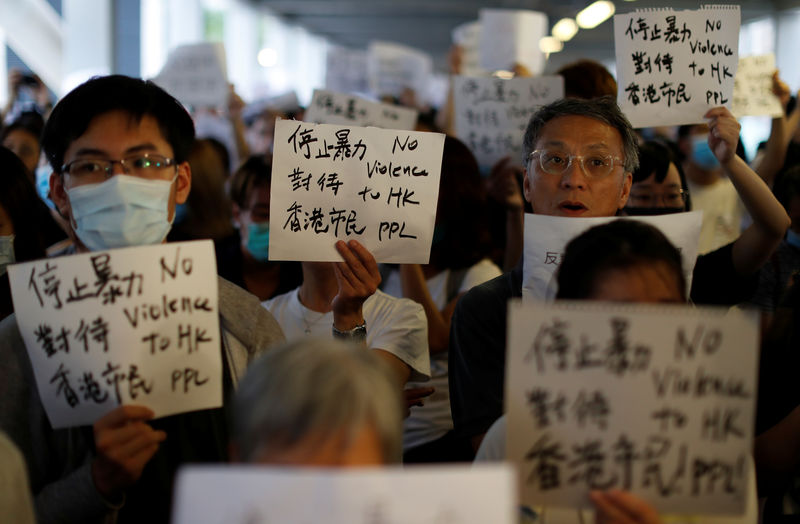BEIJING/WASHINGTON (Reuters) - China summoned a senior U.S. diplomat on Friday to lodge a formal complaint about U.S. comments on Hong Kong, after proposed U.S. legislation that would require the government to justify the continuation of special treatment for the territory.
The bipartisan Senate legislation, sponsored by several senior senators, would require the U.S. secretary of state to issue an annual certification of Hong Kong's autonomy to justify special treatment under the U.S. Hong Kong Policy Act of 1992.
The proposed law, introduced by Republican Senator Marco Rubio and Democratic Senator Ben Cardin, would also require the U.S. president to identify those responsible for the abduction of booksellers and other individuals from Hong Kong and subject them to U.S. sanctions.
The planned legislation comes amid a political crisis in the former British colony, where protests have boiled over against a proposed law that would allow extraditions to mainland China.
Chinese Vice Foreign Minister summoned Robert Forden, the U.S. Deputy Chief of Mission in Beijing, to lodge stern representations over recent U.S. comments and actions on Hong Kong and the extradition law and urged Washington to stop interfering in the city's affairs immediately.
Le urged Washington not to not take any actions that harm Hong Kong's prosperity and stability, the ministry said in a statement.
"We urge the U.S. side to treat the Hong Kong government objectively and fairly and respect its normal legislative process," the statement cited Le as saying.
"China will watch the U.S. side's actions and further respond," he added, without elaborating.
Hong Kong returned to Chinese rule in 1997 under a "one country, two systems" deal guaranteeing it special autonomy, including freedom of assembly, free press and independent judiciary.
Many accuse China, where the courts are strictly controlled by the Communist Party, of extensive meddling since then, with the extradition proposals a further example.
Earlier on Friday, the foreign ministry expressed "extreme dissatisfaction" with the proposed U.S. bill, calling it "irresponsible carping and crude interference".
China called on the United States "to give up its delusions of creating chaos in Hong Kong, stop pushing the proposed bill and to stop interfering in China's domestic affairs," spokesman Geng Shuang told a regular media briefing.
The bill would also require the president to issue a strategy to protect U.S. citizens and business from the effects of a revised extradition law and the U.S. Commerce Department to issue an annual report assessing whether Hong Kong was adequately enforcing U.S. and U.N. sanctions, particularly those on Iran and North Korea.
In addition, the legislation would make clear that Hong Kong citizens should not be denied visas to the United States if they were arrested or detained in connection with protest activity there.
Scuffles broke out between demonstrators and police in Hong Kong on Thursday as hundreds of people persevered with a protest against the extradition law a day after police fired tear gas and rubber bullets to break up big crowds.
Wednesday's protests around the city's legislature forced the postponement of debate on the bill, which many in Hong Kong fear will undermine freedoms and confidence in the commercial hub.

(The refiled story adds dropped name of vice minister in paragraph 5.)